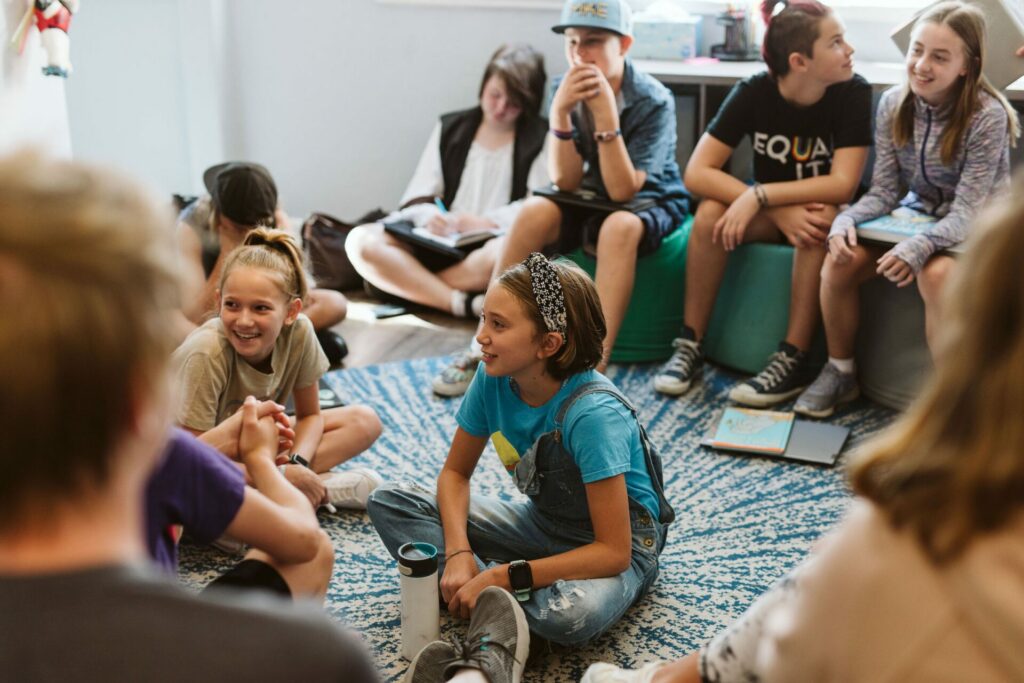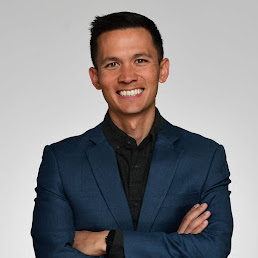We believe that if we are to be a school that breaks the mold, it must start on day one and as immediately as possible.
Brian Hyosaka, Head of School, Embark Education
Flashing back to pre-pandemic times, I remember when I first heard about this seemingly surreal school called Embark. I wholeheartedly believed that my current school, a dual-language Montessori school, was leading the charge of novel learning. Miguel Gonzalez, the then director of Embark, told me about this school where learning happens not in a classroom, but in a coffee shop and a bike shop, and where the schedule was dictated by learners, not educators. I thought he was crazy.
Crazy though he was, I found myself immediately piqued by Embark. A year later, and for the last few years, I have been supporting young learners and adults to find their bearings in this learner-centered paradigm, first as an educator and now as the Head of School. One of our core tenets at Embark is a commitment to continuously learning. Over our four years of existence, this commitment has propelled us to explore four different ideas of how to best support learners transitioning from a variety of schools into Embark.
Community and radical trust play a paramount role in everything we do at Embark, and we aim to instill these traits in new and returning learners from day one. Before brainstorming how we should welcome learners, we thought about some of the challenges they might face as they begin their journey with us. Learners at Embark must create and manage their own schedules. Learners at Embark must move through the outside community with awareness and confidence. Learners at Embark must collaborate with other peers from different grade levels on projects that have authentic and consequential impacts. After four years of learning, we enter our fifth year with some concrete practices and rituals that support new learners and returning learners at the beginning of each year.
Exploring Our “Classroom”
One of the first and biggest discoveries for new members of our community—that we devote immediate intention into supporting—is how to navigate our learning spaces. Certainly, there is some explicit naming and touring, but one of our favorite practices is the whole-school scavenger hunt. On the first day of school each year, we integrate new learners and returning learners into groups. The scavenger hunt asks each group to not only move through Embark spaces such as our coffee shop, Pinwheel, and our bike shop, Framework, but also to meet the baristas and mechanics whom we view as educators. For young learners, this establishes immediately that we are embedded in the shops and that they will be speaking with many adults on a first-name basis.
Beyond the school spaces, as part of the scavenger hunt each group receives money to spend in the community around us. This is in stark contrast to many other schools where learners are not trusted. At Embark, we believe in radical trust as well as being contributing members of our community. Learners immediately feel the radical trust in one of the most palpable ways possible: cold, hard cash in hand. They also learn that they are entrusted to move through the world around them without adult supervision and act as responsible, respectful members of the community.
At the end of the scavenger hunt, we have heard year after year that these young learners go home and tell their families, “You won’t believe what we did today!” We believe that if we are to be a school that breaks the mold, it must start on day one and as immediately as possible.
The product is not always the most beautiful, but the story of learning that accompanies it is where the true value lies.
Brian Hyosaka, Head of School, Embark Education
How We Embark
Following day one, we aim to show learners what Embark is all about in full before stepping back and examining the parts. For us, this means shortening the first learning experience of the year while ensuring that there is an authentic and tangible product at the end. The main goal of this specific learning experience is for learners to understand “How we Embark,” not necessarily that they create the best final product. In fact, the end product is not always the most beautiful, but the story of learning that accompanies it is where the true value lies.
We know that each of our learners has unique interests and we honor that by providing them with different pathways to engage in learning. Embark learners are empowered to choose from multiple learning experiences based on authentic needs. Last year, one of the experiences our learners opted into was building Little Free Libraries for different elementary schools and nonprofit organizations in our neighborhood. Learners collaborated with small groups of their peers on the blueprinting and construction of the Little Free Libraries. They collected data on the characteristics of already-existing Little Free Libraries in our neighborhood, developed themes for their own unique creations, and received guidance from experts in woodworking through a partnership with a local organization, Craftsman & Apprentice.
Through this learning experience, they were quickly steeped in our competencies, specifically agency, quantitative reasoning, and collaboration. We supported learners in discovering how they self-manage their schedules, and how they invite their groupmates to collaborate during their non-lesson blocks. Not only did learners have to honor their commitments according to their schedule, but they worked hand-in-hand with new teammates on a complex and public task. Through this, they learned how to build the libraries, explored different ways to source books, built interpersonal and project management skills, and so much more.
At the end of these four weeks, many of the Little Free Libraries were delivered, and a handful were not—and that’s an outcome that we anticipate and celebrate! Because the emphasis was on “How we Embark,” their reflections on learning were the ultimate product of the experience.
At the beginning of each school year, we repeat the same theme knowing that the product and process may change slightly. To kick off the 2023-2024 school year, learners had the choice to either revamp and redesign one of our learning spaces or use design thinking to create the first-ever Embark swag. With a professional budget, learners applied their quantitative reasoning and agency to make a true impact on their learning environment!
Building Supportive Relationships
Aside from the lessons our young people are learning, we have also found immense value in both advisory and learner-educator one-on-one conferences. In our weekly, grade-level advisory, we specifically support learners’ use of their Google Calendar and how they might best use an Eisenhower Matrix to inform the decisions of what work to prioritize and when. We also use this time to unpack the feedback they receive through our learning management system and set goals around how to improve based on guidance given by educators.
Outside of this group meeting, each learner has an advisor who will stay with them for the entirety of their tenure at Embark. In their first year, they have a weekly advisory conference where they receive the full attention and care of an Embark educator. These conferences are intentionally differentiated to serve any and all needs that a learner might be facing—from addressing learning differences, to identifying personal passions, to discussing a learner’s home life. At the beginning of the year, the topic is often around how a learner might best schedule their days, where they could choose to complete work, or how they can seek a peer or an adult for help.
By the end of this first learning experience, all of our learners have made great progress at understanding “How we Embark.” Yet, we know that each human is on their own trajectory and path. They grow tremendously during this short period of time, but that growth is only a blip on their journey of courageously inquiring, engaging, and discovering a sense of self at Embark.
“Back to school” might look different here, but so does everything else at Embark. We find that providing learners the tools to harness the radical trust they’re given at Embark not only sets them up for success in the years ahead, but for a lifetime.

